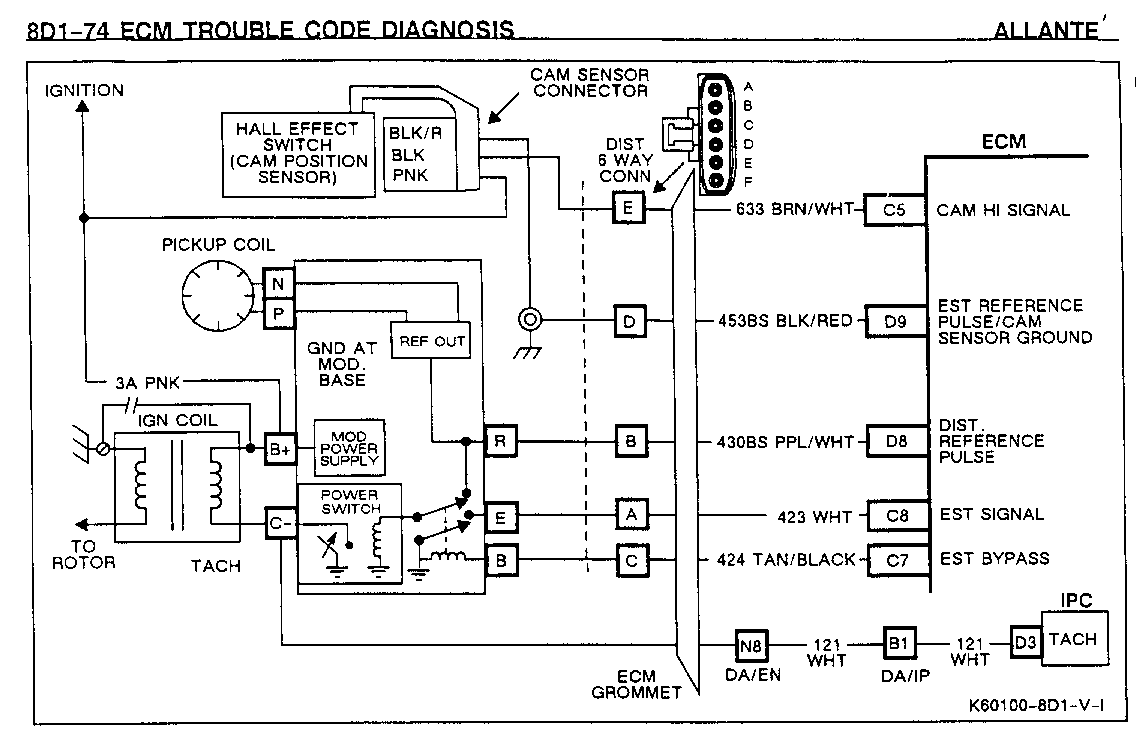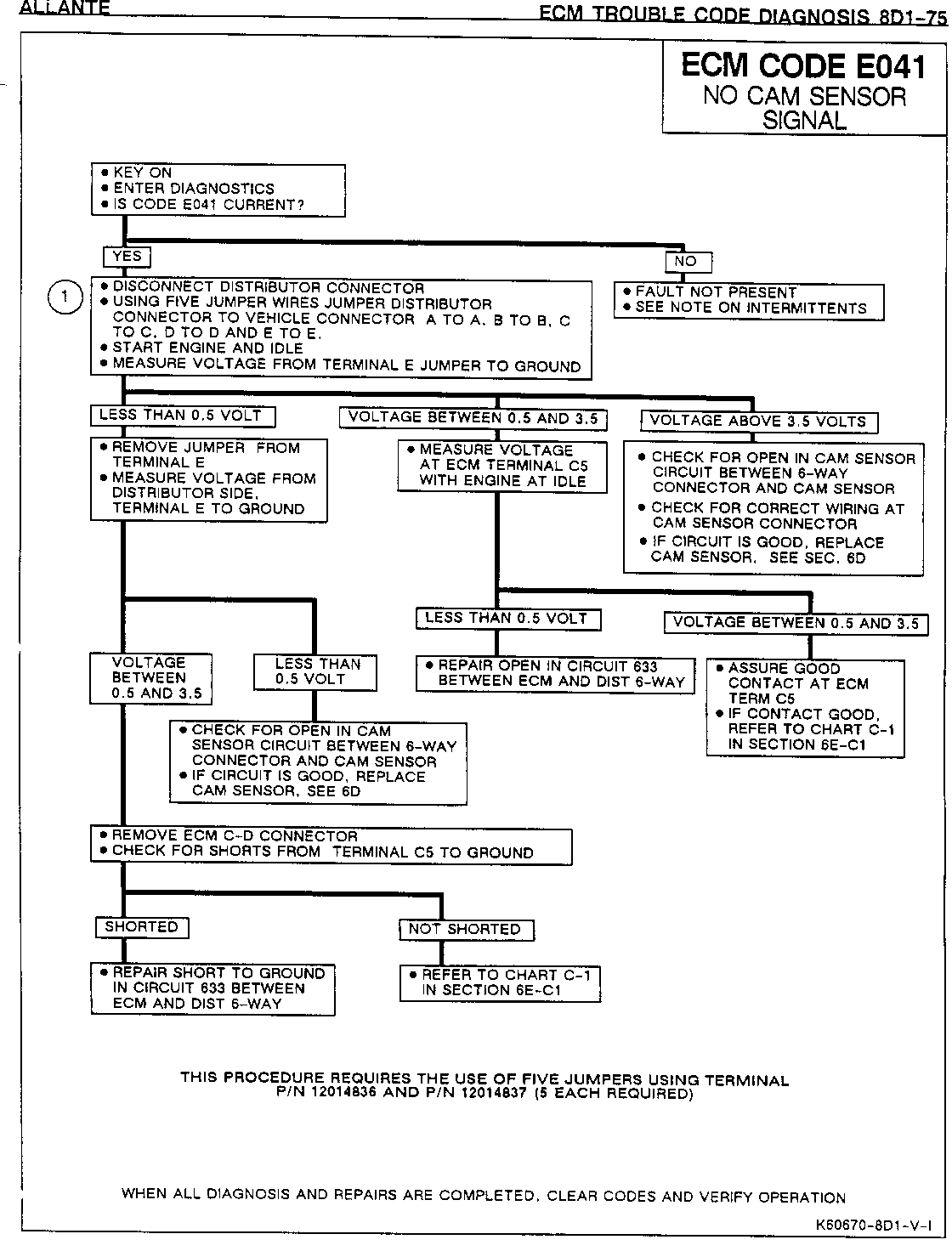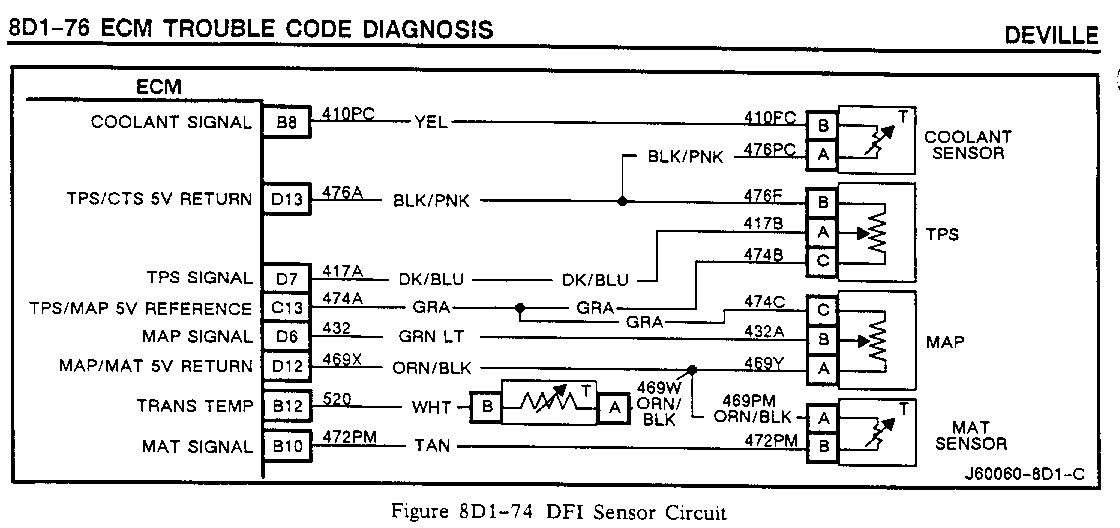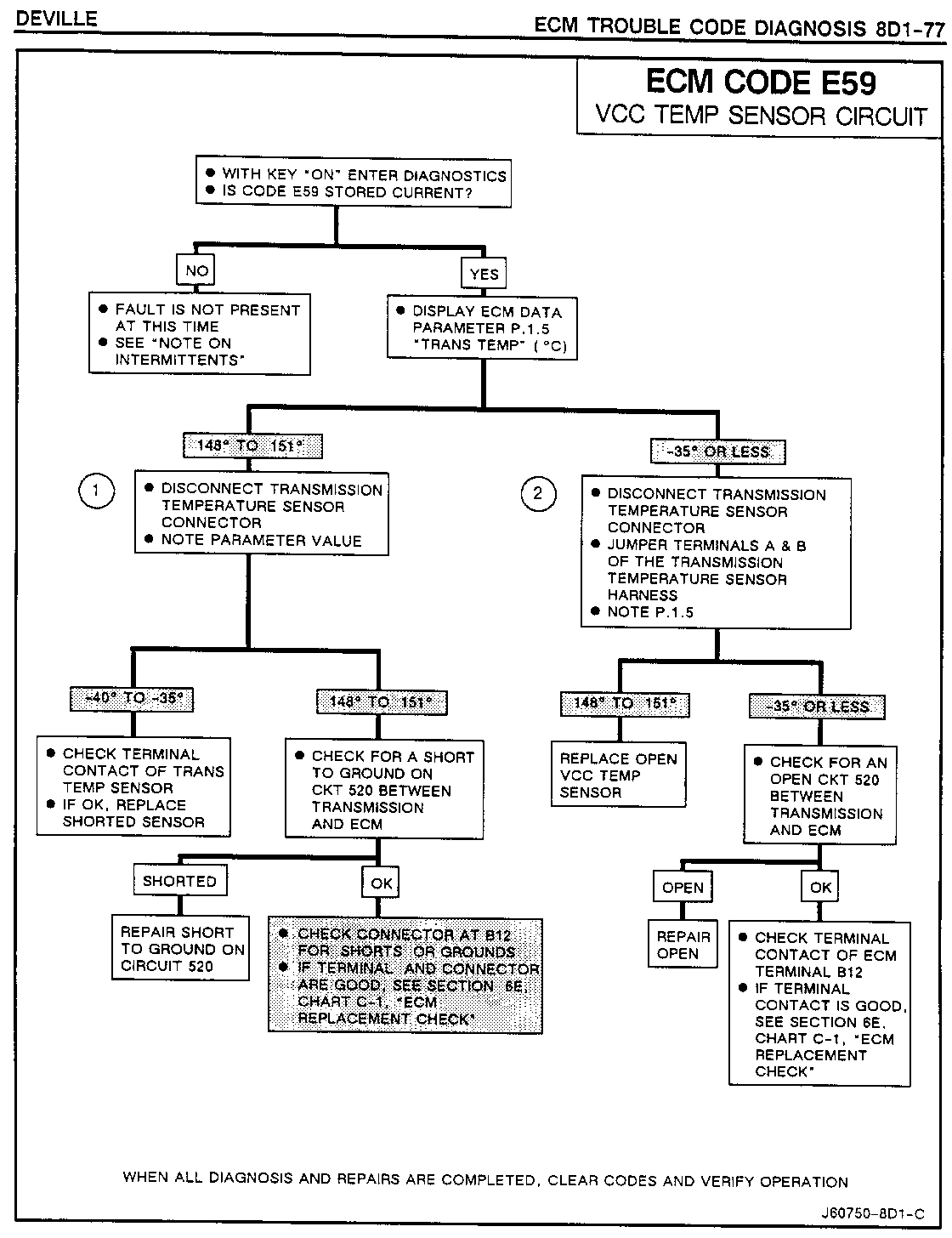MANUAL REVISION ECM TROUBLE CODE DIAGNOSIS/CODES EO41,EO59

VEHICLES AFFECTED: 1988-89 CADILLAC C, 1987-88 CADILLAC V
This bulletin provides updated information for the facing page and diagnostic chart for ECM Trouble Code Diagnosis for Codes E041 and E059.
Attached you will find copies of the facing pages and diagnostic charts which can be inserted into your Service Information Manual.
CODE E041 NO CAM SENSOR SIGNAL
TEST CONDITIONS: 1. Code E012 not set; 2. Distributor Reference pulses being received; 3. RPM ( 1600 - FAILURE CONDITIONS: No cam reference pulses being received for 5 seconds.
ACTION TAKEN: ECM turns on "Engine Control System Fault" telltale.
DESCRIPTION: The cam sensor is located on the distributor shaft and provides one pulse per rotation of the distributor. The ECM uses the cam sensor signal to know the location of the camshaft for proper fuel distribution.
Code E041 sets when the ECM knows the engine is turning (reference pulses being received on CKT 430) and does not detect any cam sensor pulses.
Notes On Fault Tree:
1. This trouble tree requires the use of five jumper wires which can be fabricated using terminal P/N 1201483 and 12014837. When checking voltage on cam sensor circuit, a typical good voltage is between 0.5 and 3.5 volts and varying.
NOTES ON INTERMITTENTS:
Manipulate affected wiring while the engine is running. If the fault is induced the code will set and the wiring should be repaired for an intermittent open or short to ground.
Disconnect and reconnect the distributor connector and ECM connector and ensure they are latched.
ECM CODE E59, TRANSMISSION TEMPERATURE SENSOR CIRCUIT
TEST CONDITIONS: Always tested.
FAILURE CONDITIONS: Transmission temperature greater than or equal to 151 DEG C or transmission temperature less than or equal to -40 DEG C.
ACTION TAKEN: 1. VCC is engaged at a higher than normal vehicle speed.
Description:
The transmission temperature sensor is a two wire sensor that provides the temperature of the transmission oil as it enters the transmission oil cooler. The transmission temperature sensor receives a voltage signal from the ECM on CKT 520. As the temperature of the transmission oil increases, the sensor resistance decreases, and the signal voltage on CKT 520 increases. The ECM interprets low voltage as a low temperature and a high voltage as a high temperature. The transmission temperawre sensor is a thermistor (like the Coolant Temp Sensor).
The ECM uses the transmission temperature input to delay VCC engagement in cases of very high transmission oil temperature.
Code E59 is designed to detect a transmission temperature sensor open or shorted. Code E59 will not set due to transmission overheating or very cold ambient conditions.
Note On Fault Tree:
1. The transmission temp sensor CKT 520 is shorted to ground.
2. CKT 520 is open to the sensor or the sensor is open to ground.
Note On Intermittents:
Manipulate the transmission temperawre sensor and ECM connector and the CKT 520 wiring while observing parameter P.1.5.
Remove and replace the transmission temperature sensor and ECM connectors and ensure that they are latched. If the wiring and connectors check out OK, substitute a known good transmission temperature sensor and retest.
Review the snapshot data parameters stored with the code to verify failure condition. Refer to section 6E-B "Symptoms" for complete details on using the "Snapshot on code set" feature. If the failure condition is verified, check and repair intermittent wiring connection or sensor.




General Motors bulletins are intended for use by professional technicians, not a "do-it-yourselfer". They are written to inform those technicians of conditions that may occur on some vehicles, or to provide information that could assist in the proper service of a vehicle. Properly trained technicians have the equipment, tools, safety instructions and know-how to do a job properly and safely. If a condition is described, do not assume that the bulletin applies to your vehicle, or that your vehicle will have that condition. See a General Motors dealer servicing your brand of General Motors vehicle for information on whether your vehicle may benefit from the information.
